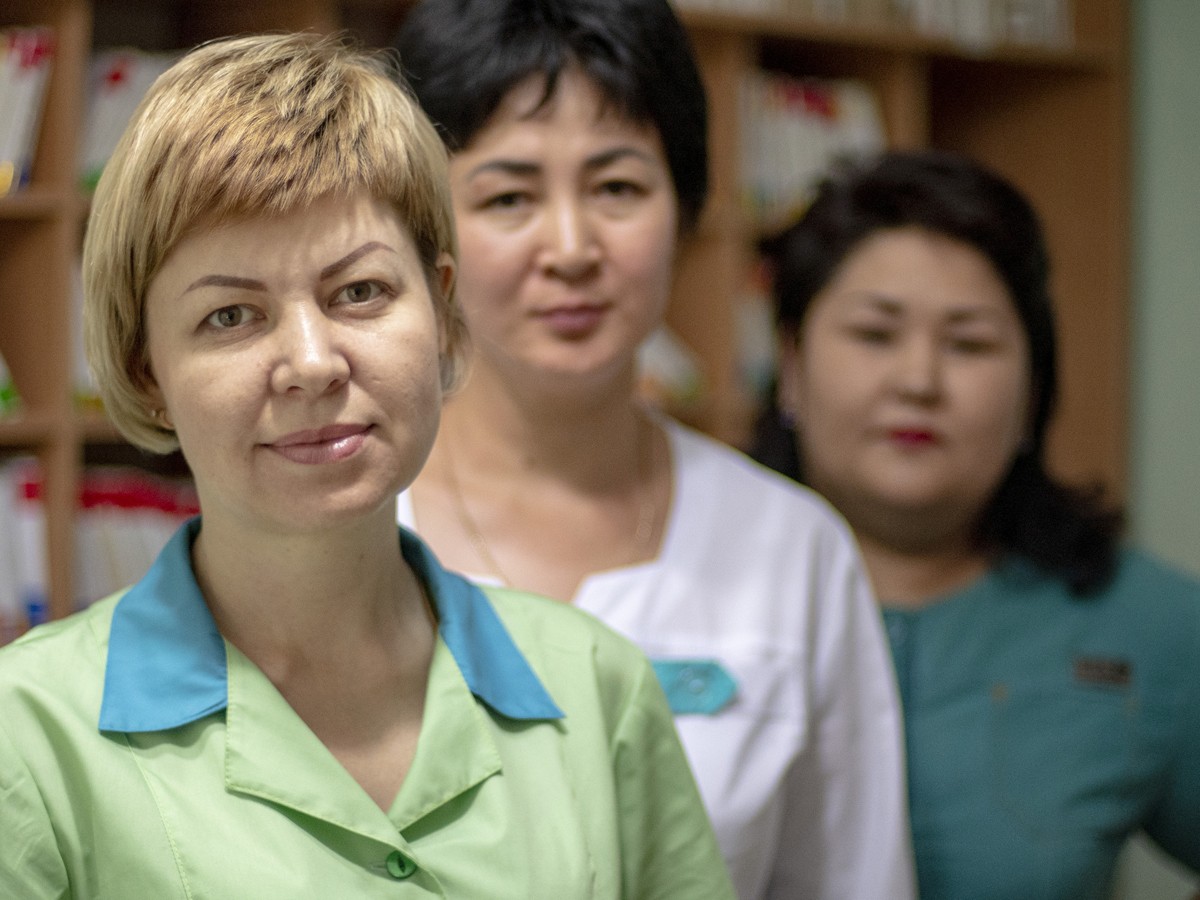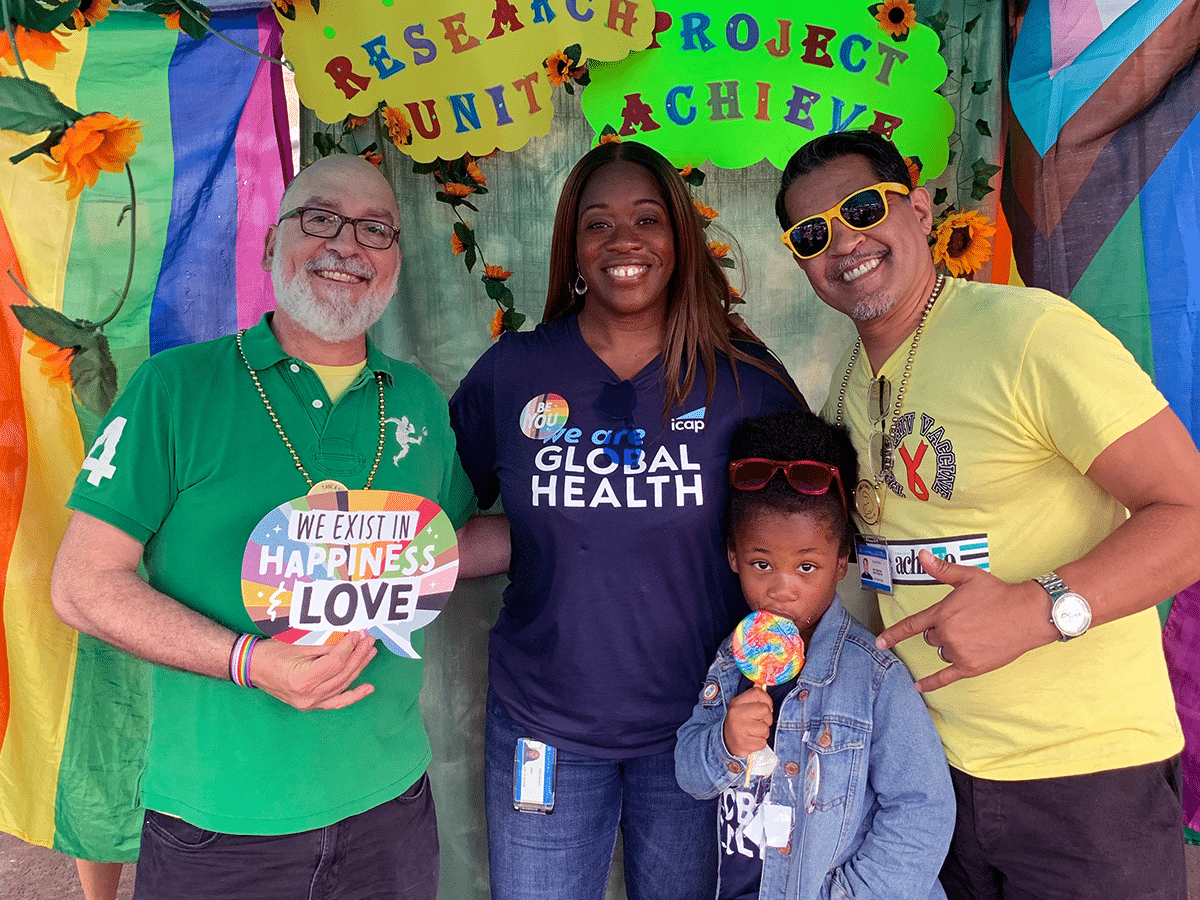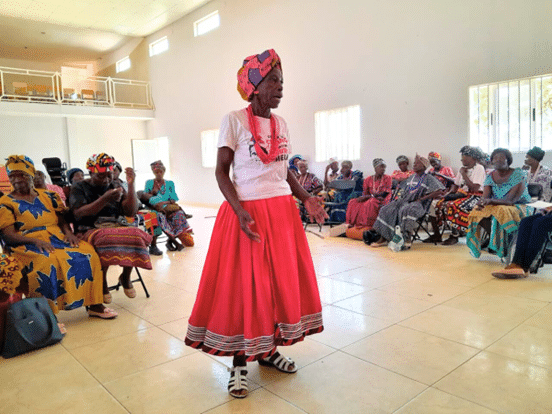In Kazakhstan, women hold two-thirds of all medical positions, with a similar proportion in neighboring Tajikistan and the Kyrgyz Republic.
In the ICAP-supported East-Kazakhstan Oblast AIDS Center, however, women make up a remarkable 90 percent of the medical specialist staff.
One of these health practitioners is Dinara Salimbayeva, one of the East-Kazakhstan AIDS Center’s home visiting nurses. Having served more than 22 years as a nurse, 12 of those with the Center, she developed the desire to help others at a very young age.
“I was the first child in my family, and my parents were young students, so I was raised by my grandparents,” she recalled. “My grandparents were often sick, and I dreamed that when I grew up, I would become a doctor to treat them. I wanted to help people with severe diseases, to give them support and inspire hope for a cure.”
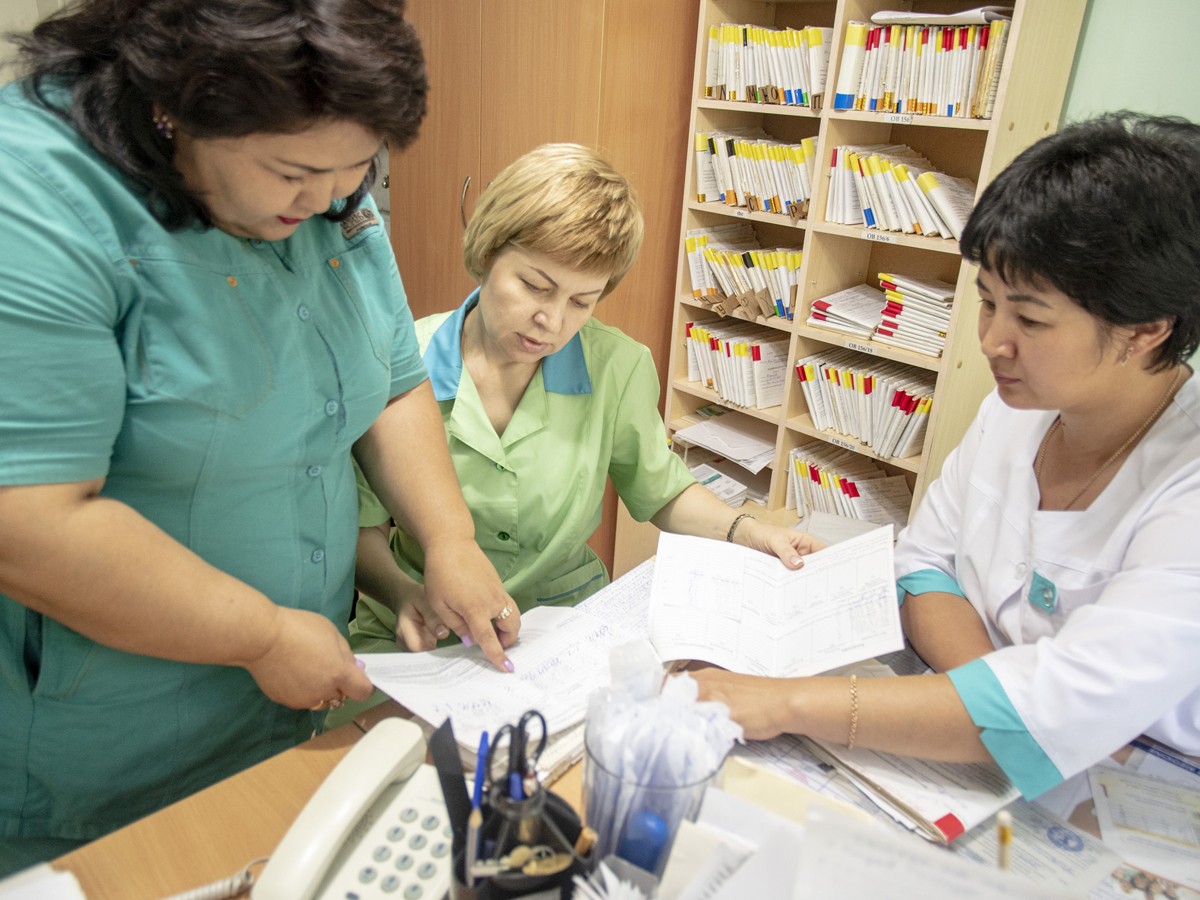
Salimbayeva graduated from Ust-Kamenogorsk Medical College, where she studied human anatomy and physiology and learned to provide urgent medical care as well as psychological counseling and patient support. In her work as a nurse, the combination of technical expertise and interpersonal skills is essential.
“You need to have a desire and a purpose to do this job,” Salimbayeva said. “In my work, I like to see when patients recover, and their quality of life improves. Building trusting relationships is very important to the healing process and the outcome.”
Salimbayeva’s work is part of the SUPPORT4HEALTH model, which aims to improve retention in care and adherence to antiretroviral therapy (ART) for people living with HIV by bringing skilled nursing care to individuals at home, rather than requiring patients to risk identification and stigma by visiting the health facility. The personal contact with a community health care worker also enables a trusting relationship and specific support for patients with additional health needs, such as those who inject drugs, who have tuberculosis, or who are pregnant or breastfeeding.
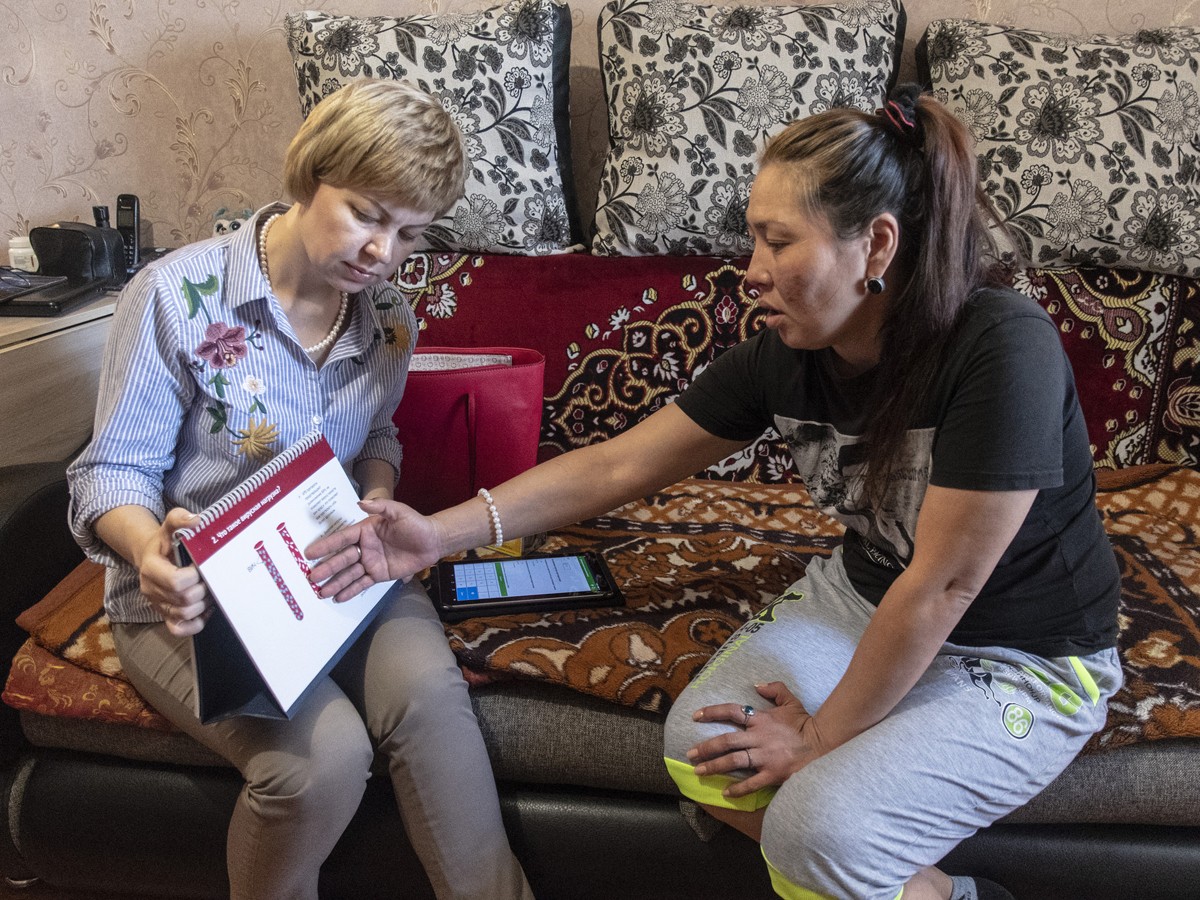
SUPPORT4HEALTH is active in all three countries ICAP supports in Central Asia—Kazakhstan, Tajikistan, and the Kyrgyz Republic—as part of the multi-country Global Technical Assistance program funded by the U.S. President’s Emergency Plan for AIDS Relief (PEPFAR) through the Centers for Disease Control and Prevention (CDC). SUPPORT4HEALTH been implemented in East-Kazakhstan and eight other PEPFAR priority sub-national units since 2015, and ICAP rolled out a redesigned version in East-Kazakhstan in January 2018.
“The diseases that are the focus of ICAP’s work in Central Asia—mainly HIV, tuberculosis, and injecting drug use—are all closely connected with one another and have deep social roots,” said Yelena Kudussova, the regional HIV care and treatment advisor for ICAP in Central Asia. “Additionally, for women, sexual and reproductive health, including pregnancy, childbirth, sexually transmitted infections (including HIV), and gender-based violence, are significant health challenges.”
Both Kudussova and Salimbayeva listed stigma and discrimination as the biggest barriers to seeking care and support.
“Women test for HIV at higher rates than men, and have both a higher level of adherence to HIV treatment and a quicker time to viral suppression, regardless of whether they were infected with HIV through injecting drug use or sexual transmission,” Kudussova said. “But still we see that women make up no more than ten percent of patients registered with drug treatment centers for injecting drug use, and no more than 40–45 percent of those enrolled in HIV care at ICAP sites across all three countries. Stigma and discrimination in medical facilities and in everyday life make HIV-positive women hide their status and refuse treatment and social support, so we are working to counteract this as much as possible in order to reduce these gaps.”
Salimbayeva cited two women, Elena Rastokina and Lyubov Vorontsova of the Union of People Living with HIV in Kazakhstan, as champions against stigma and discrimination who courageously campaign to show all of Kazakhstan that HIV is not a death sentence, and that a person living with HIV can live as long and happily as someone not affected by HIV.
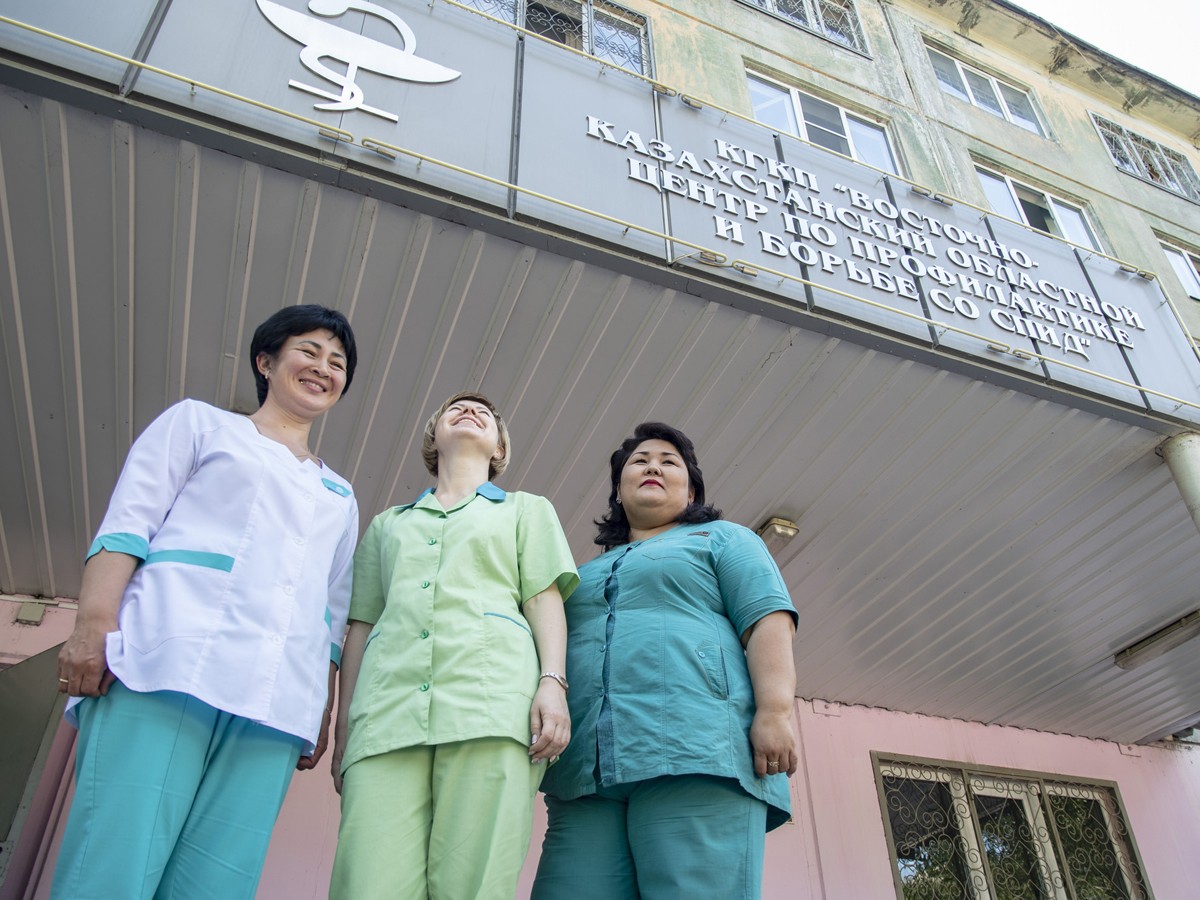
She also gave the example of one patient, Olesya, who was able to turn her life around through involvement with SUPPORT4HEALTH. Olesya had been an active injection drug user who was diagnosed HIV positive during HIV rapid testing at a needle exchange service several years ago. She was prescribed antiretroviral therapy (ART) but continued to use drugs, and had difficulties adhering to her ART regimen.
“Sometimes it takes a personal connection to help someone get to where they feel confident in their own ability to care for their health,” Salimbayeva said. “One of my home visiting nurse colleagues and a physician worked with her for a long time, counseling and supporting her, talking to her about what it means to have and treat HIV, encouraging her to join a methadone maintenance substitution therapy program, and connecting her with a peer counselor.”
Over several months, Olesya dramatically improved her adherence to ART and reached viral suppression, and also graduated from the methadone program with the strategies and support to remain free from drugs and alcohol. Feeling healthy, she met her life partner, got married, graduated college with qualifications in economics, and now works as a human resource manager for one of the companies in East-Kazakhstan. Now, she is pregnant and awaiting her firstborn, with no complications due to HIV or her history of drug use.
“Olesya is very grateful to the nurses, doctors, and her peer counselor who supported her,” Salimbayeva said. “I think her story shows that continuous care and support, even if it takes many people over a long time, can help people living with HIV to successfully adhere to their treatment and reach viral suppression, and live a successful life with good health!”
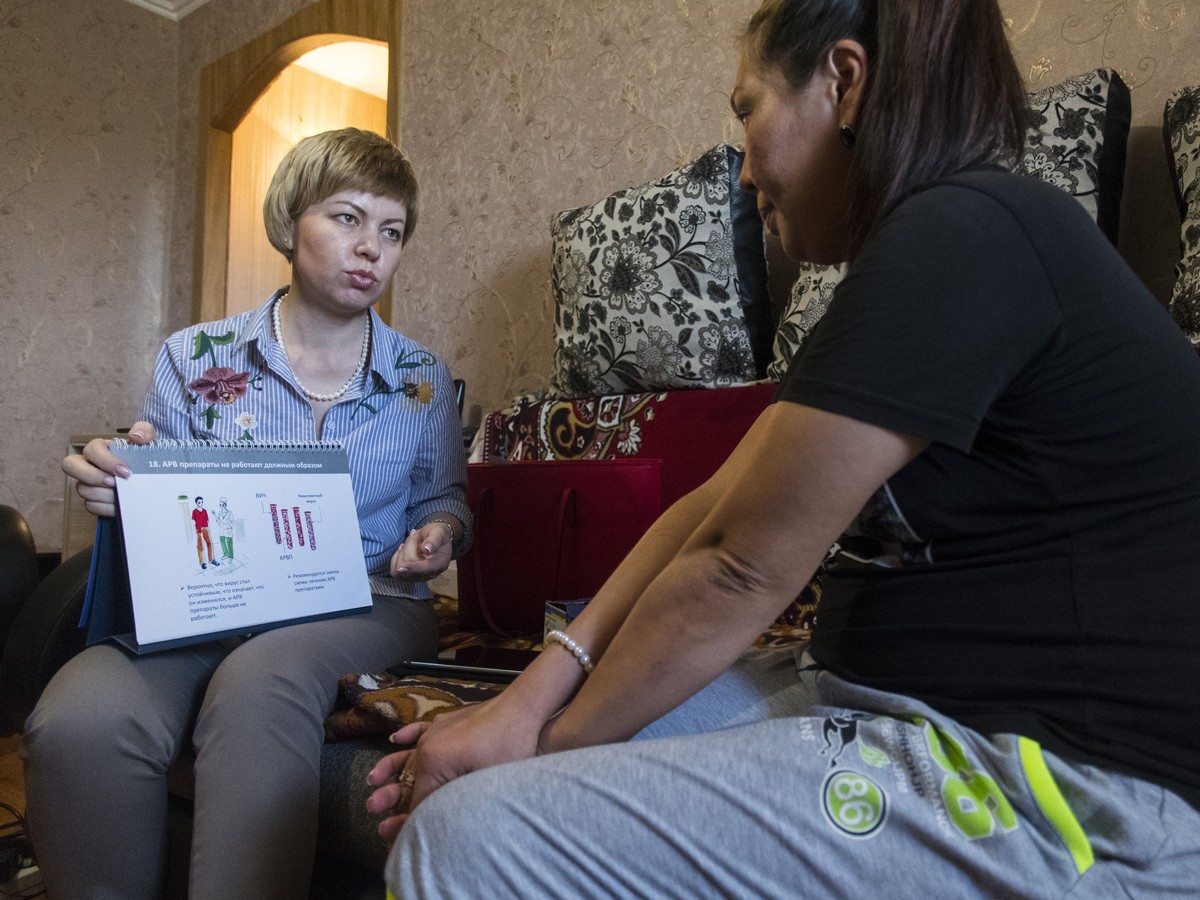
March 8, International Women’s Day, is an occasion both to honor the women whose courageous work has made the world a better place, and to shine a light on the challenges many women still face. ICAP is grateful for the strength and dedication of Olesya, Dinara, and Yelena, for helping to break down stigma and discrimination against HIV and addiction in Central Asia, and enabling a brighter future.
A global health leader since 2003, ICAP was founded at Columbia University with one overarching goal: to improve the health of families and communities. Together with its partners—ministries of health, large multilaterals, health care providers, and patients—ICAP strives for a world where health is available to all. To date, ICAP has addressed major public health challenges and the needs of local health systems through 6,000 sites across 30 countries. For more information about ICAP, visit: icap.columbia.edu
Header photo: (L-R) Dinara Salimbayeva, Anara Gabitova, and Alma Rakhimova at the East-Kazakhstan AIDS Center. Photos 2 and 4: Dinara Salimbayeva and colleagues at the East-Kazakhstan AIDS Center. Photos 3 and 5: Home visiting nurse Dinara Salimbayeva counsels a patient at home.


